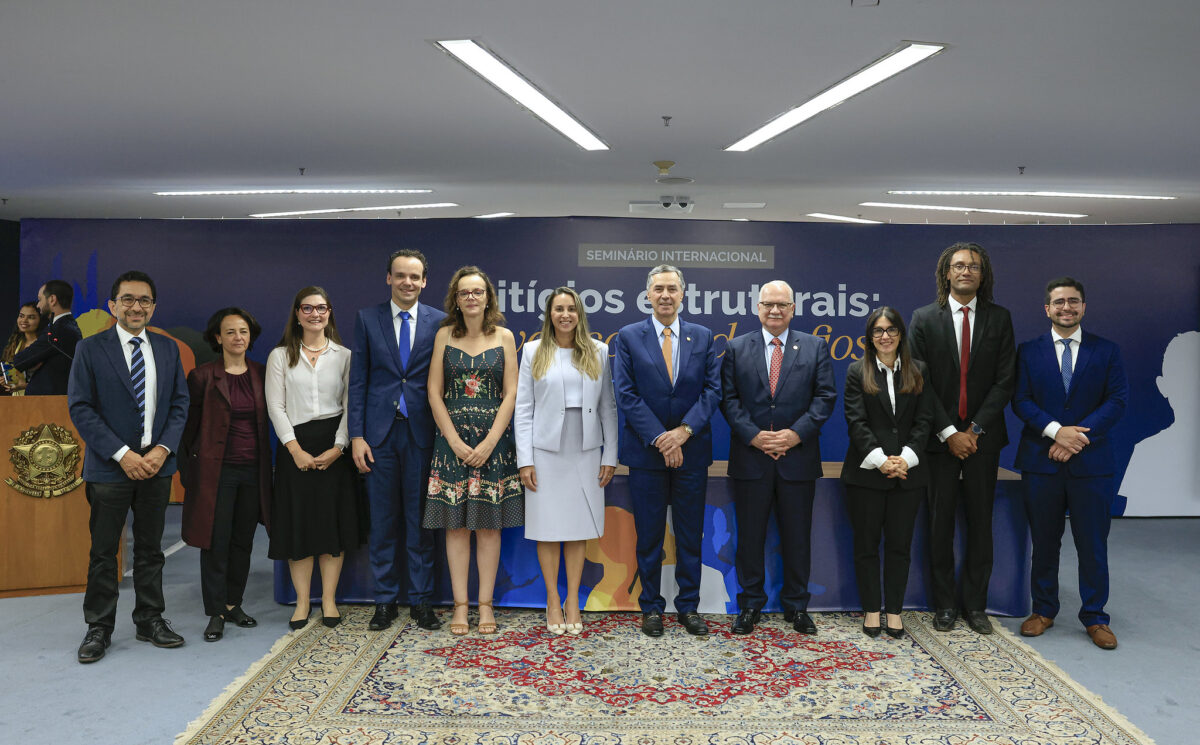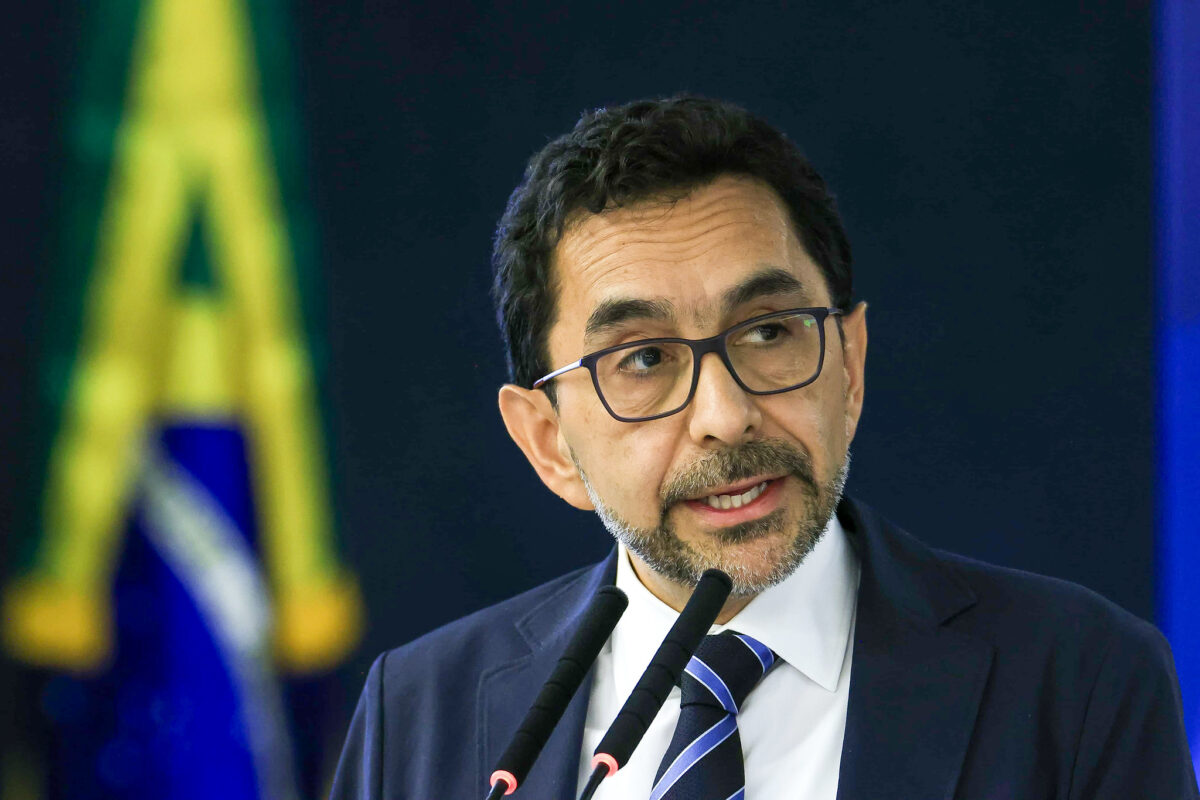CLIMATE AND ENVIRONMENT
Center Chair gives keynote talk in Brazil Supreme Court’s Seminar on structural litigation
On October 7, 2024 as part of the Center for Human Rights and Global Justice’s ongoing academic exchange with Brazil’s Supreme Federal Court (STF), Professor César Rodríguez-Garavito gave a keynote talk in the seminar “Structural Litigation: Advances and Challenges” in Brasilia.
The event was organized by STF Chief Justice Luís Roberto Barroso as well as other high-ranking Brazilian judges, including STF’s Deputy Chief Justice Edson Fachin and the Federal High Court’s Chief Justice Antonio Herman Benjamin.
In his opening remarks, Minister Barroso highlighted the significance of structural litigation—that is, constitutional cases addressing systemic policy issues that affect the rights of large groups. Among ongoing structural cases before the Brazilian Supreme Court are those dealing with violations of Indigenous rights in the Amazon, prison overcrowding, and police violence in informal settlements. He underscored that this emerging area is central to the Brazilian judiciary, urging judges to proactively identify such issues and ensure that relevant governmental institutions develop and implement effective solutions. Other judges on the panel echoed the importance of the judiciary’s authority to act in these matters and emphasized the need for effective monitoring of structural court decisions.
The seminar also featured discussions on the judiciary’s role in resolving complex structural conflicts. Professor Rodríguez-Garavito shared insights on how structural cases are handled in comparative law, focusing on their impacts and potential applications to climate litigation. He highlighted the STF’s contributions to the protection of constitutional rights through structural rulings and suggested ways forward to ensure the legitimacy and effective implementation of the Court’s rulings.
The Center for Human Rights and Global Justice’s participation in this seminar is one of many initiatives planned with high courts from around the world for the upcoming year, underscoring the Center’s commitment to supporting judicial engagement in innovative legal areas while protecting rights and advancing justice for all.




